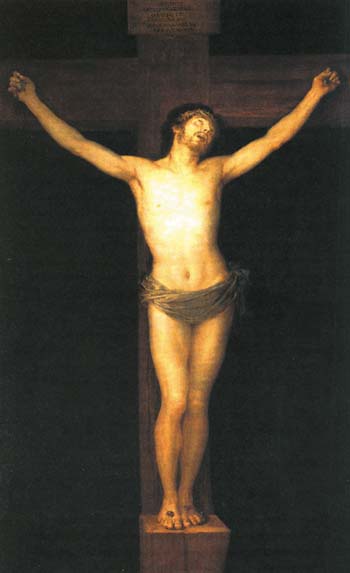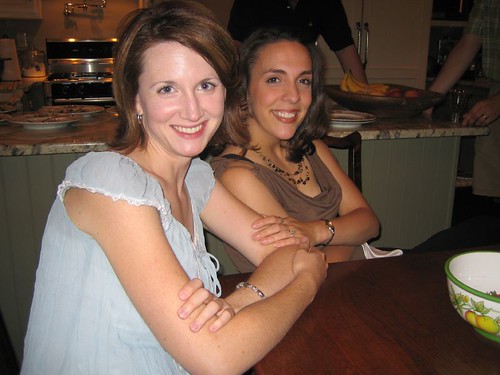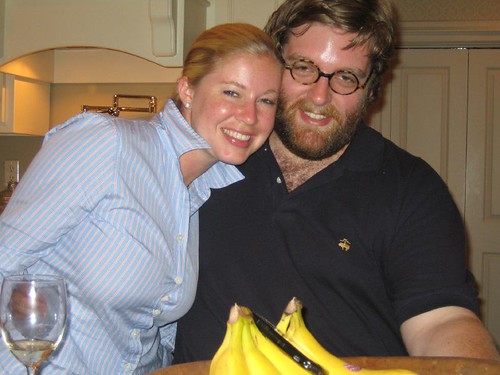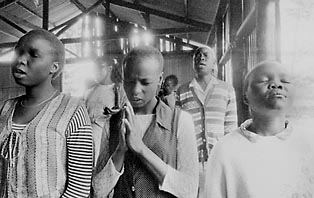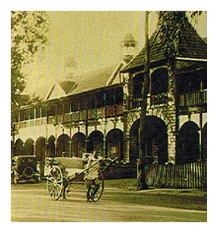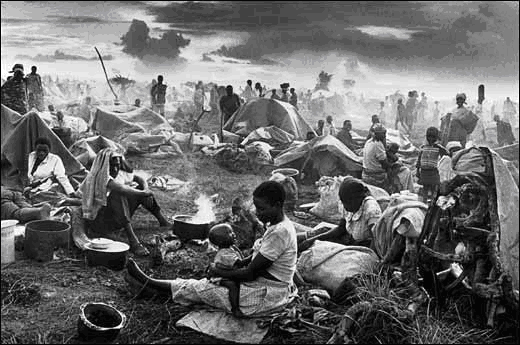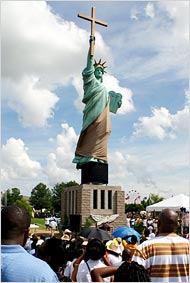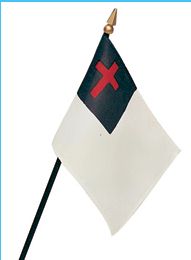And that's what we need in each of our stormy midnights

In last week's gospel lesson, we left the Apostles in a state of exhaustion. They had come back to the Lord from their mission among the people, and they had come back tired and hungry. And just when they think they've nothing left to give, the Lord reminds his hungry servants that they have still got five pieces of bread and two fish. And the Lord is able to turn a snack for twelve into a meal for five thousand. Jesus shows them that he is able to take their meagerness and turn it into life-giving abundance.
In today's gospel lesson, we see that the disciples didn't get it. They understand that Jesus has performed a miracle – the gospel of Mark up to this point is full of Jesus' undeniable miracles – but they don't understand the deep meaning – what CS Lewis called the "deep magic" – of the miracle. They don't get it. They seem unable to see the feeding of the five thousand as anything but a magical picnic. They can't get past the miracle's surface, to the Mystery of the poured-out substance of the Son of God that is the bedrock and the import, the significance, the real magic of the miracle.
And so Jesus performs another miracle. After sending the disciples away in the boat, Jesus goes up onto the mountain to pray. The disciples, perhaps, wondered how the Lord was going to join them. After all, they had taken the boat, the only boat, and its miles overland. And it's the middle of the night. How was Jesus going to reach them? And on top of that, a storm has arisen. So there are the disciples… struggling against the wind, battling the waves. And the passage says that "about the fourth watch of the night," just before dawn, Jesus "came to them, walking on the sea." Just like that. [Stop.] Oh, so that's how he's going to find us. Okay.
But once again, the disciples don't get it. They're terrified. They think Jesus is a ghost. There's a curious sentence in verse 48. It says Jesus "meant to pass by them." Why? Why did he mean to pass them by? I mean, they're in real trouble. I think this is a symbolic way for Mark to tell us that they don't recognize Jesus, and so Jesus is going to walk right past them as though they were strangers. Not only do the disciples not recognize Jesus as their friend and teacher, the guy they've been following around for some time now, but more than that – just as they hadn't recognized the deeper significance of the feeding of the five thousand, just as they hadn't seen the message of God's abundance underneath it… so also here, struggling in the boat, while they recognize something extraordinary is going on, they can't see the deep magic – the real miracle – underneath the surface. They can't see the mystical significance of what's really going on. They can't see the rootedness of this miracle in God's own being. Not only do they not understand that this is Jesus walking to them on the sea, but they don't even understand who Jesus is to begin with.
Seeing their fear, and hearing their cry, and once again, no doubt, having compassion, Jesus gives them a big hint. He says to them "Take heart, it is I; have no fear." This is a profoundly unfortunate translation. The Greek says: tharseite, ego eimi, meh phobeisthe. The middle phrase there, ego eimi, means "I am." It's the same phrase used in the Septuagint when on Mount Sinai Moses asks God to whom he is speaking. "Yes, hello? This is Moses, to whom am I speaking?" "I AM!!!" It's the same phrase here. Jesus is telling the disciples, and he is telling us, who he is. He's telling us that he is God. And as with much of the rest of the gospel teaching, its oblique; its indirect; its veiled under a layer of double-meaning and symbol. Why does Jesus do it like that? Why doesn't he just come out and explain things straightforwardly? Why can't he just say "Okay guys. Here's the deal. I am the only Son of God. I am the Eternal Word. I've come here to save you from your sins, and to give you a share in my infinite self," etc. Why doesn't he just do that? Why does he have to take five loaves and two fish and give thanks, and feed five thousand, and then walk on water and speak in parables and utter cryptic messages about who he is? I mean, this is important stuff! What if we miss it? What if we misunderstand it?
[NB: For one thing, he's packaging propositional truths about himself and his identity in life practices. I.e. he's giving a lebens form to himself, to make himself comestible, so to speak, to his disciples. If he just said "I am the Eternal Word. I am the only-begotten of God," that may seem at first to be direct and straightforward, but what really does that mean? What is an "eternal word"? What is it to be the "only-begotten of God"? He's mercifully wrapping all this stuff about himself in life practices, in things we can get hold of. He's giving us handles on himself. He's providing little points whereon we can attach ourselves to him. Etc. And that's also why we, in turn, don't just hold up a sign that says "John 3:16" and consider that to be enough. Instead, we do what he did. We wrap all these propositional truths about Jesus in life-practices. When we gather together, we don't just read true sentences about Jesus. We do do that, but that's not all we do. E.g. we also take bread, bless, break it, give it, eat it, etc. We walk around, we swing incense, we sprinkle water on ourselves, etc.]
The short answer is: ask Father Duncan. Just kidding. I think Jesus teaches this way for the same reason that "he meant to pass by" the disciples in the boat, when he came to them walking on the sea, in the darkness, in the chaos of the storm. He wants to provoke a response in them. And he wants to provoke a response in us. Because salvation won't work in our lives until we need it, until we need him, until we, like the disciples, are terrified and cry out in the tempestuous darkness of our lives. And its not that God is strict or tricky. To borrow another one of Jesus' symbols: salvation is like seed. God scatters it liberally, all over the place, near and far. But if it falls on concrete, it just won't take. There's nothing for it to latch on to. It can't take root and flourish. Rather, It has to fall on soil that is prepared to receive it, soil that has been broken-up and opened, so that the seed can enter in and take root. Just so, its not that our Lord is just withholding salvation by revealing himself in obscure symbols, but the deepness of his difficult self-revelation is gracious. It's a double mercy. The difficulty and the obscurity of it causes us to struggle to get at it, and our struggle to understand, our struggle to know who Jesus is showing himself to be, is the preparation of our hearts to receive the secret, the mystery of Who he really is, and the mystery of who we really are in him. In one stroke the seed is scattered and the soil prepared.
That is the process we see unfolding for the disciples in the Gospel of Mark. Their hearts are slowly being broken-up and opened to receive the fullness of the mystery of Who this Wonder-Worker really is, and of who he is calling us to be. At the end of today's gospel lesson we read "And they were utterly astounded, for they did not understand… but their hearts were hardened" (Mk. 6.52). Pretty soon in Mark there is a very noticeable shift in the narrative. Soon after chapter 8, Jesus will abandon all of his miracles and teaching ministry in Galilee; he will turn his face toward Jerusalem, and go there to suffer and die. And only then, on the other side of death and resurrection, will the pieces begin to fall into place for the disciples. Only then will they look back on all the miracles and obscure sayings of their Master and understand the Mystery of the Gift of the eternal Word, the Only-begotten Son of God, the secret of his very own substance poured out for them. Then they will look back and remember that hour before dawn, in the middle of a storm on a lake, when Jesus came to them walking on the water. Then they will understand not just that he walked on water and silenced the storm, but they will understand why. Because the disciples cry out to him, and because he is the Lord of the wind and the waves. Because the wind and the waves and the disciples themselves were brought into being through his power, and obey his voice. They will see who it really is that suffered and died: the Lord of all Creation, who was in the beginning with God.
And that's what we need in each of our stormy midnights. For here we are too: his disciples, storm-tossed, straining at the oars and reaching the point of exhaustion, surrounded in our lives by darkness and buffeted by the winds of chaos, or the waves of sickness, or family trouble, or difficulties at work, or financial trouble or loneliness – or menaced by sinful habits that we find loathsome but can't seem to change. How often do we feel trapped by this or that, struggling at the oars of our weakness, hemmed in by the rising tide, in danger of drowning. It is into this context that our Lord comes to us, piercing right through the turbulence and the darkness with his supernatural stride. And what attracts his attention is your cry for help, your recognition of the real danger posed to your soul by the darkness and temptation that surrounds you day by day. But thanks be to God that Jesus will not pass you by when you cry out to him in your heart, in prayer. He will come to you. And he will get into the buffeted, rocking boat of your life. The winds will cease. And he will begin to open your heart to the mystery of his life and his death in you, and to the true meaning of your life and your death in him. But let that mystery begin to unfold in your heart, or to unfold anew, today with his words: whatever your darkness, whatever winds of affliction beat against you, whatever waves of sinfulness threaten to pull you under: Take courage. Don't be afraid. I AM. AMEN.



